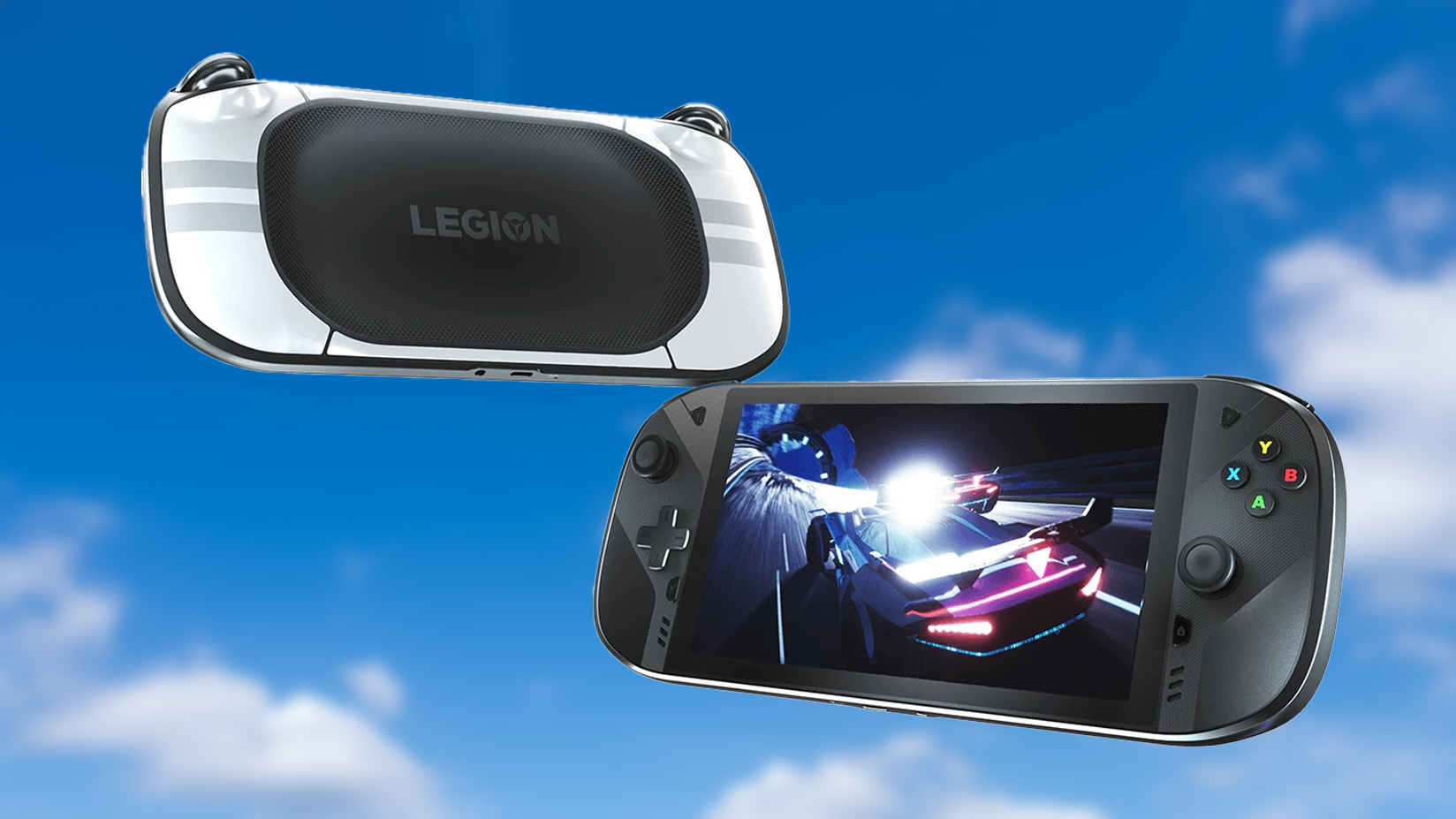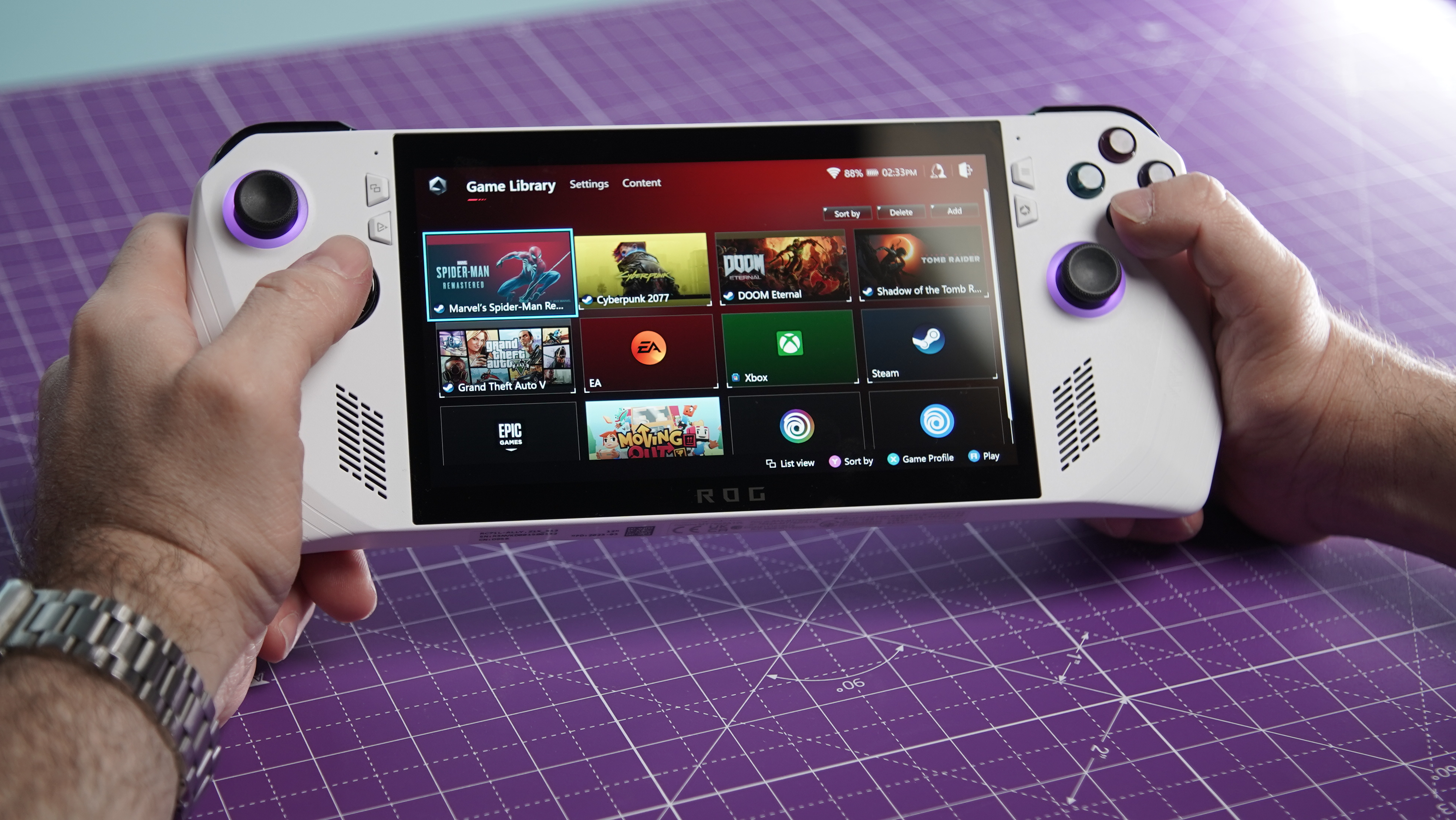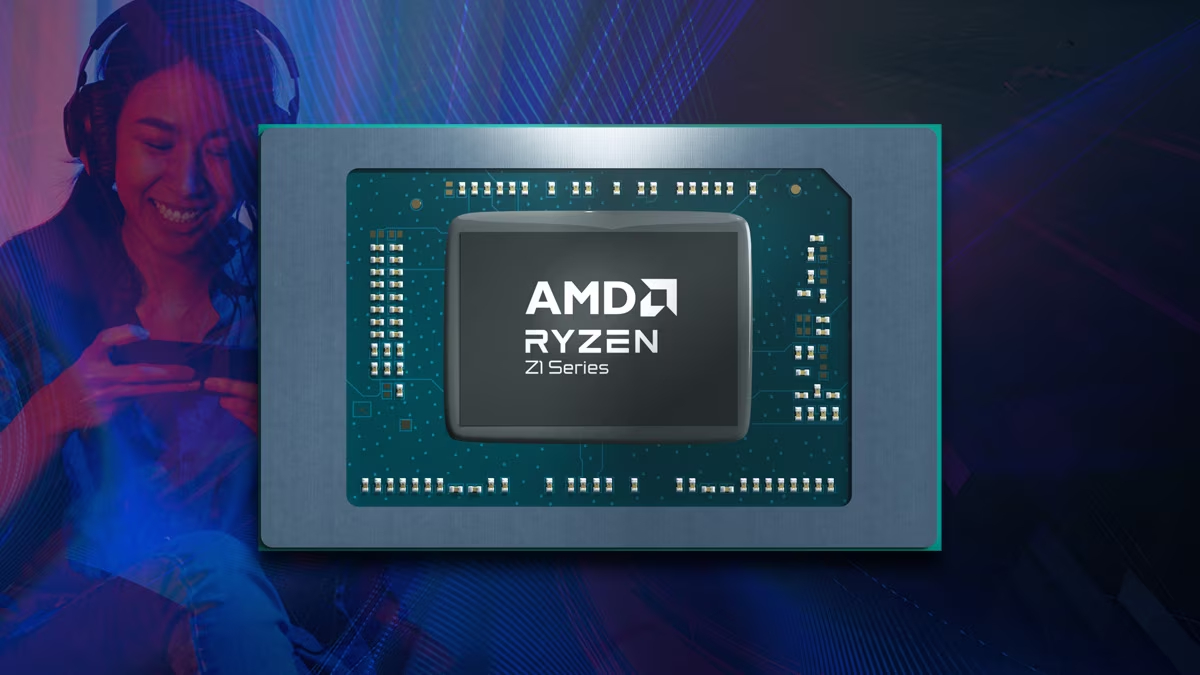Lenovo’s Legion Go handheld has me excited — here’s why
I hope Lenovo's rumored gaming handheld can be a legitimate Steam Deck rival

The Steam Deck is one of the best gaming handhelds for playing the best PC games thanks to its ergonomic design, great performance and rock-solid Steam game library.
We’ve seen a slew of competitors in the Steam Deck’s wake, such as the AyaNeo 2S and Logitech G Cloud. The Asus ROG Ally came closest to truly rivaling the Steam Deck but it’s still not a better alternative to Valve’s mighty handheld.
The Steam Deck’s dominance might not last, however. Sources trusted by Windows Central claim Lenovo is developing its own gaming handheld, dubbed the Lenovo Legion Go. If this report is true, Lenovo’s rumored handheld could give Steam Deck and Asus ROG Ally competition.
As a huge Steam Deck fan myself, this rumor has me excited.
Right now, the supposed Lenovo Legion Go is little more than a rumor. With that said, this isn’t the first Lenovo handheld we’ve heard about. On top of that, the Windows 11 handheld market seems to be booming — which would make this an ideal time for Lenovo to unleash its own gaming handheld.
Keeping in mind that the Legion Go is still very much a rumor, here’s why I’m excited about this alleged Lenovo handheld.
A reportedly larger display
According to Windows Central, the Legion Go handheld will supposedly have an 8-inch display. We don’t know anything about resolution, refresh rate or response time. However, the fact this handheld’s display is a full inch larger than both the Steam Deck and ROG Ally’s 7-inch displays is reason enough to celebrate.
Get instant access to breaking news, the hottest reviews, great deals and helpful tips.

While I generally don’t have an issue playing on a 7-inch display, it’s not always easy on the eyes. This is particularly true when playing games like Cyberpunk 2077 with its tiny on-screen text. I don’t wear glasses, but even I have to virtually press my face against the Steam Deck’s display to read the game’s menus. An 8-inch display might seem like a small jump from 7 inches, but I think it could make a big difference.
As for display quality, the Asus ROG Ally sports 1080p resolution at up to 120Hz and a 7ms response time. We have no idea what the Legion Go’s display specs are, but I expect it to at least match what Asus’s handheld is capable of — or at least I hope it can match 1080p at 120Hz.
Potentially powerful performance
Per Windows Central’s report, the rumored Lenovo handheld will feature AMD’s Ryzen 7040 “Phoenix” CPU. This chip has an AI engine named Ryzen AI, which AMD claims is the first laptop chip to feature a dedicated AI engine. The company also says the new chip can churn through multiprocessing workloads in Cinebench up to 34% faster than the Apple M1 Pro. AMD boldly claims the chip supposedly delivers up to 30 hours of video playback on a laptop.
The Asus ROG Ally we reviewed packed an AMD Ryzen Z1 Extreme chip, with a model featuring an entry-level Ryzen Z1 chip due later this year. AMD admits the Ryzen Z1 chips bears many similarities to the Ryzen 7040 processors (via Tom’s Hardware). The main differences are that Ryzen Z1 chips have the AI engine disabled and consume as little as 9W of power. In contrast, Ryzen 7040 processors gobble up between 15-30W. We’d need to benchmark and compare both of AMD’s mobile chips to see how they compare, but on paper, they appear similar.

If the Ryzen 7040 series laptop GPU is on par with the Ryzen Z1, that’s both good and bad news. During my qualitative testing, the ROG Ally ran games at higher frame rates than the Steam Deck at 720p resolution. For instance, Doom Eternal’s FPS topped out in the low 70s while the Steam Deck achieved 45fps at best. However, when at 1080p resolution, games on the Ally ran at virtually the same frames per second as on Steam Deck. If the Ryzen 7040 series is equal to the Ryzen Z1, we might see similar performance — though we certainly can’t say that for sure.
Battery life is another thing that's in question. When we ran the Steam Deck and Asus ROG Ally through the PCMark 10 gaming benchmark battery test, both handhelds lasted for roughly 1 hour and 40 minutes. That's not great battery life, though it's comparable to most gaming laptops when running games. We don't know how long a Ryzen 7040-powered Legion Go could last for, but I hope it's considerably longer than the Steam Deck and ROG Ally.
Outlook
The Steam Deck is currently the gaming handheld to beat for serious gaming enthusiasts (sorry, Nintendo Switch fans). While I’m an ardent Steam Deck supporter, I want a legitimate rival for Valve's powerful handheld.
Healthy competition is always good, and if someone can outdo the Steam Deck, it’ll force Valve to step up its proverbial game for the next iteration. The rumored Lenovo Legion Go could be exactly what I’ve been waiting for.
Given how Lenovo releases some of the best gaming laptops and best gaming PCs, I have high hopes for this alleged Legion-series handheld. Hopefully, we’ll get official confirmation within the coming months.
More from Tom's Guide
- Asus ROG Ally vs Steam Deck: Which handheld wins?
- AyaNeo 2S review: A Steam Deck rival with power to spare
- How to install an SSD into a Steam Deck

Tony is a computing writer at Tom’s Guide covering laptops, tablets, Windows, and iOS. During his off-hours, Tony enjoys reading comic books, playing video games, reading speculative fiction novels, and spending too much time on X/Twitter. His non-nerdy pursuits involve attending Hard Rock/Heavy Metal concerts and going to NYC bars with friends and colleagues. His work has appeared in publications such as Laptop Mag, PC Mag, and various independent gaming sites.
 Club Benefits
Club Benefits





